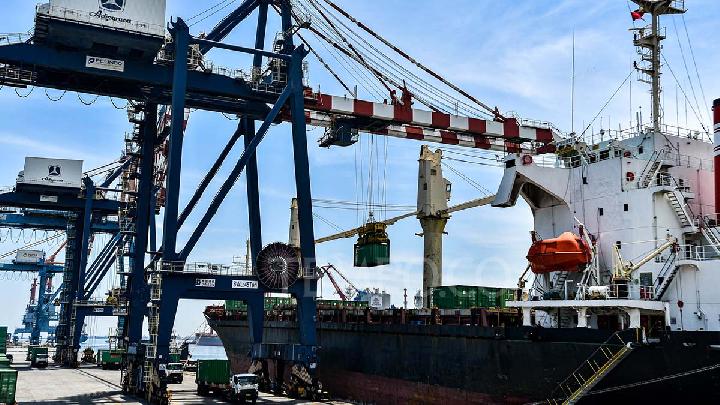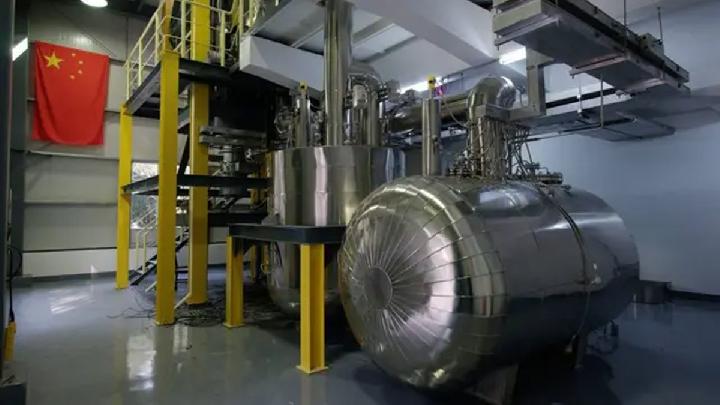April 22, 2025 | 08:31 pm

TEMPO.CO, Jakarta - Over the course of decades, China has transformed itself into a manufacturing titan, crafting a remarkable success story that echoes across the globe. From electronics to everyday essentials, Chinese-made products have become so deeply woven into international markets that it is hard to find an item without the “Made in China” stamp.
If you have ever pondered, “Why is 'everything' made in China?”, this article dives into the key factors behind this global manufacturing marvel.
Top Reasons Why 'Everything' is Made in China
Investopedia and some other manufacturing sources attribute the global surge of Chinese-made products to low production costs. Read on to learn more about the system below.
1. Low Labor Costs
China is both a populous and industrialized country which extends the availability of lower-waged workers. In order to thrive in such a dense labor ecosystem, the majority of its 1.41 billion population are willing to work in shifts. This arrangement has been an adventurous route for enterprises looking to cut production costs.
On top of that, China enforces just two minimum wage tiers nationwide, with little to no extra pay for overtime whether it is late at night or on weekends. With such lean labor policies in place, it is no wonder the government manages to maintain control over its densely populated regions.
2. Expansive Manufacturing Business Ecosystem
China exudes the sentiment of living in the future, and there is a solid basis for it. The country has recorded substantial growth in its business ecosystem since the 1990s. Thanks to its commitment to investing in manufacturing infrastructure, China now has a well-integrated transportation system that combines highways, railways, and ports to deliver goods efficiently.
The country’s efforts extend beyond improving transportation; it has also created specialized industrial hubs, such as Shenzhen for electronics and Guangzhou for textiles. As a result, numerous companies are deeply embedded in this robust manufacturing network, making it essential to their operations.
3. Lenient Regulations
Investopedia has noted that China maintains less stringent regulatory standards in comparison to other industrial countries. Although some changes towards workers' protection laws are regularly examined, significant compensation improvements have not been instituted across many industries. Chinese factories still often operate with long shift hours, low labor cost, and, regrettably, instances of child labor.
4. Access to Raw Materials
China is blessed with a vast array of raw materials, from many grades of steel to base metals including aluminum, iron, magnesium, copper, and zinc. Its relatively uncomplicated access to these manufactured goods has transformed the country into an attractive destination for companies aiming to benefit in the final product costs. Plus, China has played a pivotal role in driving global economic growth, opening doors to expanded opportunities and deeper connections in international trade.
5. Currency
When it comes to currency power, China trails behind its Western counterparts, most notably the United States. This imbalance has led to the US dollar gaining strength across various sectors, and the manufacturing industry in China feels the impact too. In fact, this currency dynamic might just be one of the key reasons why so much is made in China.
6. Noticeable Technology Growth
China is undeniably one of the most technologically advanced countries. Home to tech giants like Alibaba, Douyin, Oppo, Tencent, Huawei, Baidu, and BOE, China demonstrates exemplary capabilities in technology and innovation. Additionally, many factories across various industries are seen utilizing both automatic robots and artificial intelligence to carry out production.
Next time you wonder why 'everything' is made in China, always remember that the answer is a mix of low costs, smart logistics, tech innovation, and sheer scale. China has mastered the art of manufacturing, becoming the engine behind everything, and shows no signs of slowing down.
Editor's Choice: A Look at QRIS, Recently Cited as Barrier to U.S.-Indonesia Trade
Click here to get the latest news updates from Tempo on Google News
Indonesian VP Gibran Talks of Demographic Bonus: It's Our Turn to Take a Role
1 jam lalu

Indonesian Vice President Gibran Rakabuming Raka shared his views on the opportunities presented by the demographic bonus.
Chinese Premier Li Qiang Scheduled for State Visit toIndonesia in Late May 2025
2 jam lalu

Chinese Premier Li Qiang is slated to make a state visit to Indonesia at the end of May 2025.
China, Indonesia Forge Closer Ties with Landmark 2+2 Ministerial Dialogue
4 jam lalu

Indonesia and China marked a historic milestone by holding the inaugural 2+2 Dialogue, China's 1st ministerial-level dialogue with a partner country.
BPS: Indonesia's March Trade Surplus Hits US$4.33 Billion as Positive Streak Continues
1 hari lalu

BPS reports that Indonesia's trade balance has experienced a surplus for 59 consecutive months
China's J-36 Fighter Jet: Online Leak Hints at Sixth-Generation Power
1 hari lalu

A futuristic Chinese fighter jet without a tail and equipped with three engines has caused a stir on social media.
Chinese Boy Hospitalized After Swallowing 100-Gram Gold Bar
1 hari lalu

An 11-year-old boy in eastern China caused a stir by swallowing a 100-gram gold bar, which got stuck in his large intestine.
China Overtakes US in Thorium-Based Nuclear Development
1 hari lalu

The Chinese team is studying and developing a thorium-based nuclear reactor originally owned by the United States.
US Cracks Down on Nvidia AI Chip Exports to China
2 hari lalu

The U.S. is tightening export controls on Nvidia AI chips to China and requires licenses for similar transactions in the future.
NASA's LunaRecycle Seeks Innovative Solutions for Human Waste on Moon
2 hari lalu

NASA invites researchers and innovators to create technology capable of managing human waste on the Moon.
Power Struggle: Overseas Military Bases of U.S., China, and Russia in Asian Region
3 hari lalu

The United States has the widest network of military bases in the Asian region as part of its "forward deployment" strategy.

 2 hours ago
9
2 hours ago
9












































